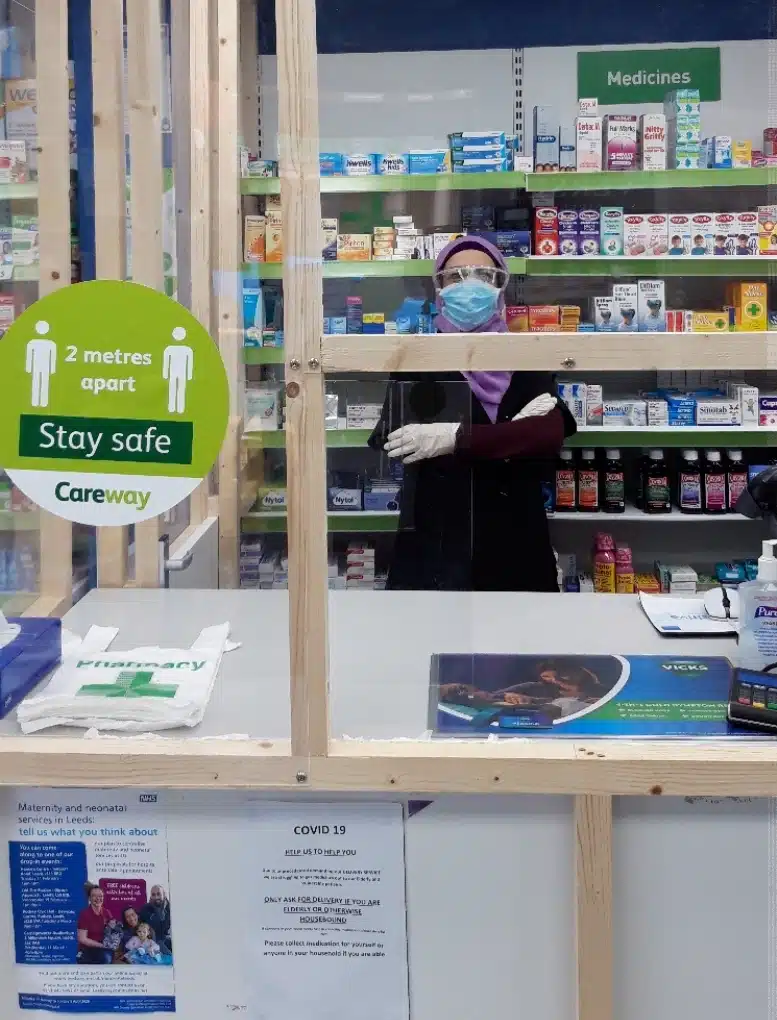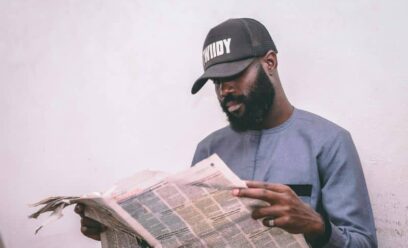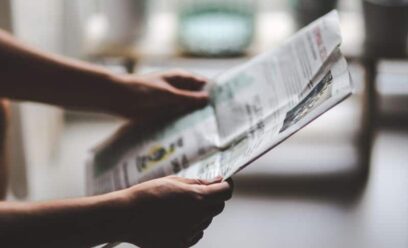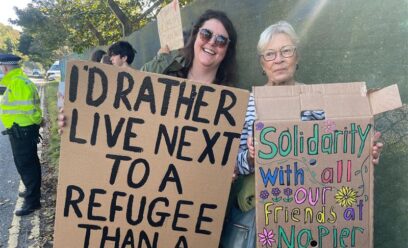9 more positive stories of people making a difference during Covid-19 for Refugee Week 2020
Posted by Katherine Maxwell-Rose on June 17, 2020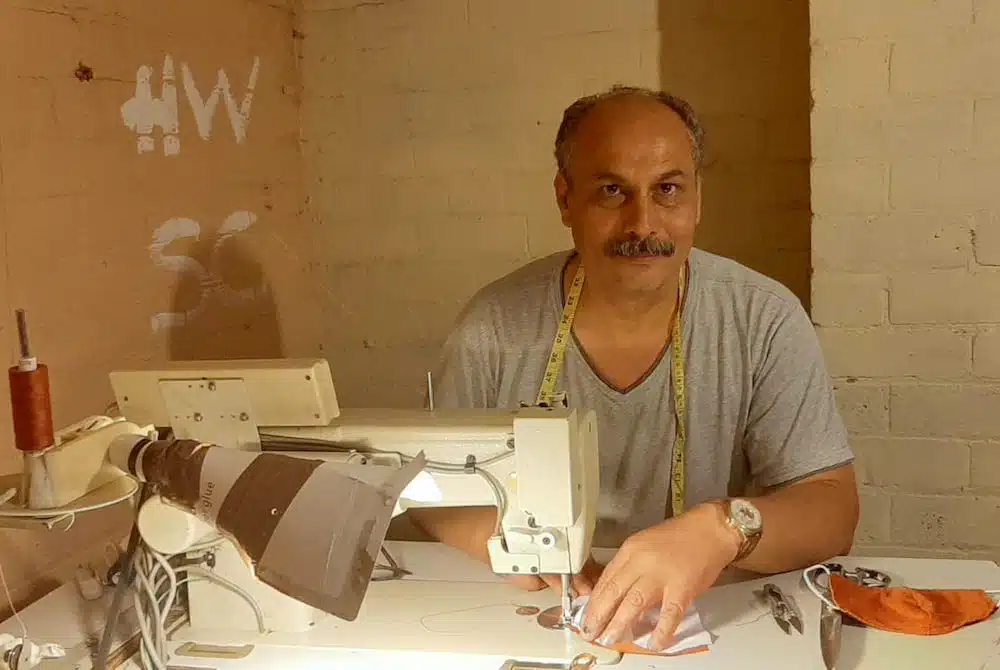
Throughout the Covid-19 pandemic, we have been collecting together stories of people making a difference in their communities. For Refugee Week we are profiling even more stories of refugees and the organisations who support them, stepping up in amazing ways to help others over the last few months.
The theme of this year’s Refugee Week is #Imagine which is an invitation to imagine a different world. We believe the people featured in these stories are already helping to make a better society for all of us.
1. Muzaffar’s famous plov!
Chef and entrepreneur, Muzaffar Sadykov cooked up some of his famous plov – a traditional Uzbek meal to feed NHS staff in hospitals including King’s College and Guy’s and St Thomas. Muzaffar launched an Uzbek street food business OshPaz in 2018 and he serves up his dished at street food markets across London including KERB, Street Food Union and Mercato Metropolitano. During the pandemic he has switched to online deliveries. Muzaffar is supported by TERN, a brilliant organisation which supports refugees in setting up and establishing their own businesses.
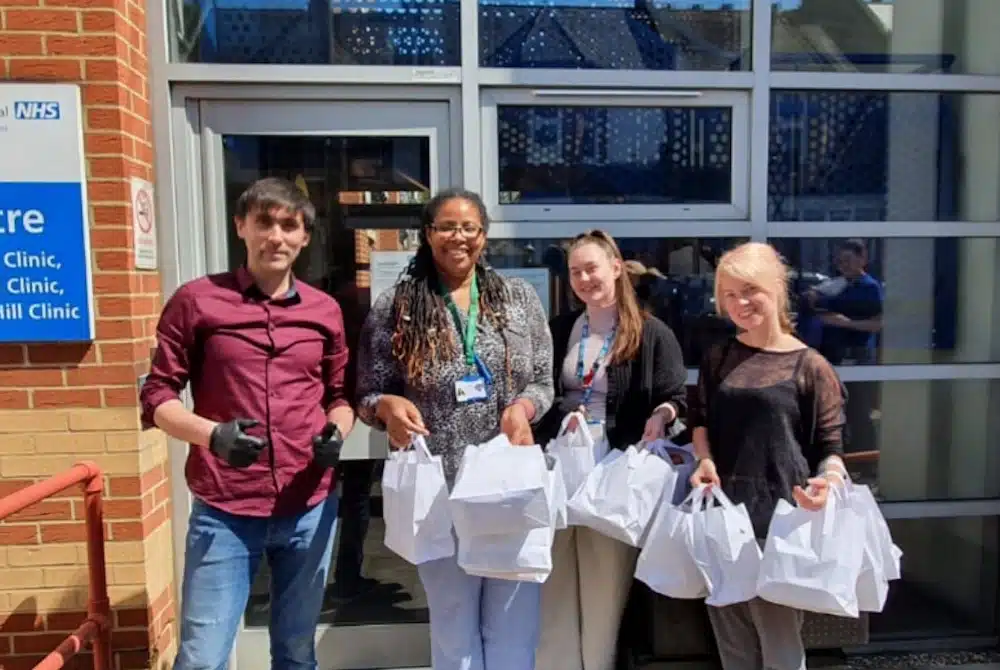
2. Sequinned masks!
Another TERN entrepreneur and talented fashion designer, Teem Khan has been busy sewing scrubs for the NHS and beautifully-designed facemasks to sell online. For every mask he sells, he donates one to an asylum seeker who would not be able to afford one otherwise. It’s an issue close to his heart from his own experiences of seeking sanctuary in the UK and knowing that asylum seekers struggle to survive on a tiny income.. Teem launched his own clothing line in 2019 under the tagline, ‘Fabric has no gender. Fashion is fluid.’ Teem who now also has a temporary role with the NHS said, ‘I have been adapting some of the masks to be more like my Pride line; rainbows! Sequins! They’re fun, bright, a boost of positivity and they’re very well made.’
It is an awesome feeling be able to support my friends who work in the #NHS https://t.co/TLvomGB9d6
— Teemkhan (@Teemkn) May 2, 2020
3. Laptops which bring life
Socialbox.biz is a social technology business which provides free laptops and tablets to the most vulnerable in society, set up by Peter Paduh who came to the UK as an unaccompanied child refugee from the Balkans Access to a laptop in his teens, changed Peter’s life and through his enterprise, he wants to give this same opportunity to others. Without a computer many people can not access the services they need, practise basic job skills and keep in touch with family. As well as giving laptops and tablets, the company has been delivering basic IT skills by telephone to ensure people have the knowledge needed to work their devices. Madhane Kuflu, a refugee from Eritrea, received a laptop donated from Socialbox.biz just before lockdown. During Covid-19, he has been staying in temporary accommodation but before that was homeless. The laptop has made a massive difference during this time as he has been able to apply for Universal Credit, search for jobs, look for somewhere to live and keep in touch with his family. He said that this donations ‘brings people to life. We can’t live without IT or computers.’
4. Syrian pharmacist steps up
Nadia, a Syrian refugee has been working on the frontline as a pharmacist in Yorkshire throughout the Covid-19 pandemic, travelling for two hours by bus to get to work. When Nadia arrived in the UK from a refugee camp in Lebanon after a hugely traumatic time, she didn’t speak any English and thought she would only find work as a cleaner. Through the World Jewish Relief Specialist Training and Employment Programme (STEP) she was given support to retrain and the get the qualifications she needed to start working as a pharmacist again. Nadia said: ‘I want to give back to this country who has hosted me and received me as a refugee. What I’m doing is nothing. I’d like to do more.’
5. Corona Revolution
International artist and activist, Salma Zulfiqar has been producing ARTconnects workshops to promote social cohesion and keep refugees, migrants and people in isolation from around the world connected online during difficult times. During the virtual sessions different art forms like poetry, music, pictures and paintings are explored while participants talk about their work which also encourages understanding between different cultures. In May, at the height of the Covid-19 crisis, Salma also wrote and performed a poem called Corona Revolution reflecting on the situation for refugees, migrants and women. It calls for people to come together to create peaceful and tolerant communities for our shared future.
‘Believe in your strength, resilience & intelligence’ @IshmaelBeah message in ARTconnects #RefugeesWelcome #EveryOneCounts #Covid_19 #lockdown2020 pic.twitter.com/JEXBKRtCNO
— salma zulfiqar (@Salmszee) May 19, 2020
6. Boredom busters!
At the start of the Covid-19 crisis, The Cotton Tree Trust in North London found that many of its members were cut off from the support they usually rely on. Confined to their homes, often without access to stable internet and basic supplies, their members were getting hungry and desperate. The Trust began providing hardship grants, mobile phone credit and food parcels to over 30 families. The team were also concerned about people’s wellbeing, so they also created and delivered ‘Boredom Buster’ packs which contained art and writing materials, games, books and some special treats. Staying connected has been vital for everyone during lockdown. These creative, interactive packs brought back a smile to members’ faces and lifted their spirits.
“Thank you so much Cotton Tree Trust. Love the things you brought for me. Really appreciate it!”
“Am doing my word search. Love doing that”
“One love, mwah! I love this gesture”
Appreciative messages from our members on our #COVID19 support & delivery of ‘boredom-buster packs’ pic.twitter.com/FM9Nh0tGen— The Cotton Tree Trust (@CottonTreeTrust) June 1, 2020
7. Knitting champions
Members of the refugee support group Biasan in Bradford, Yorkshire have been making knitted gifts, face masks and scrubs for local NHS staff. One woman Mehret has made a lot of handmade presents for workers. They’ve found proud to play their part – and everything has been sewn together with much gratitude and love.
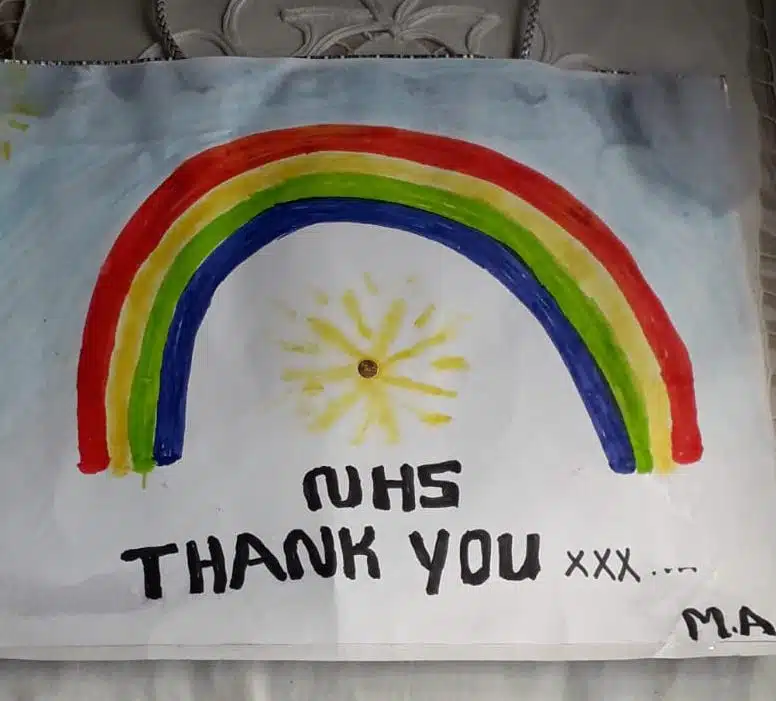
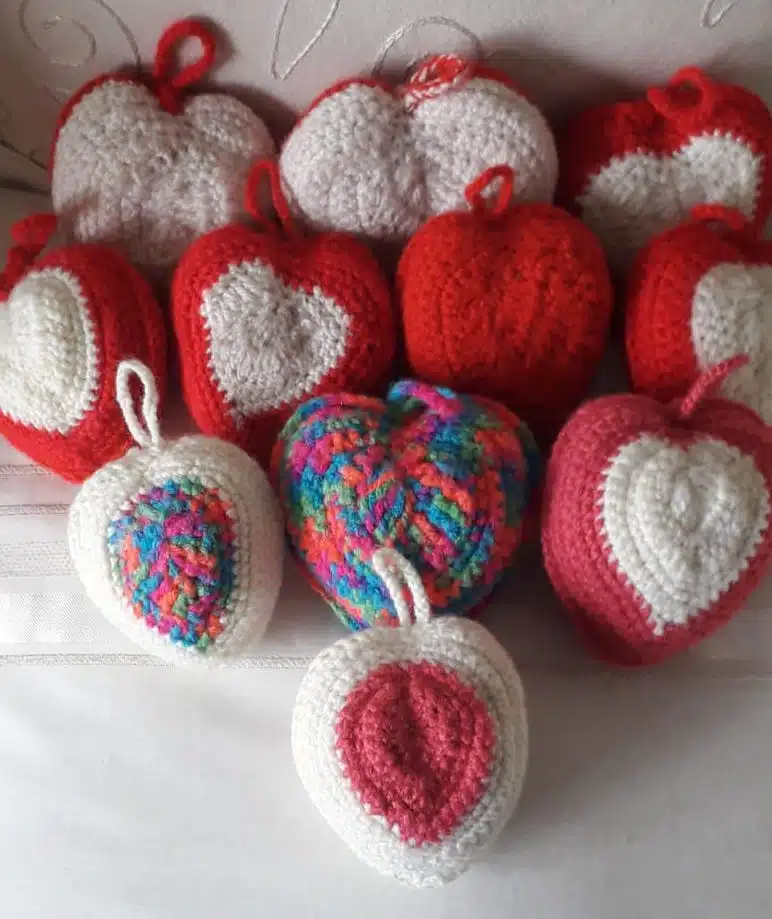
8. Takeaway treats
Mohamad, originally from Syria has been cooking around 60 delicious meals every week for those people in his community who can’t cook at home because of difficult living conditions, limited or broken kitchen facilities. He volunteers at St Augustine’s Centre in West Yorkshire, a local charity which usually serves up four free lunches a week – feeing 100 people each time. During the pandemic they’ve continued to do take-away meals and Mohamad’s nutritious, hot and varied meals are always very welcome.
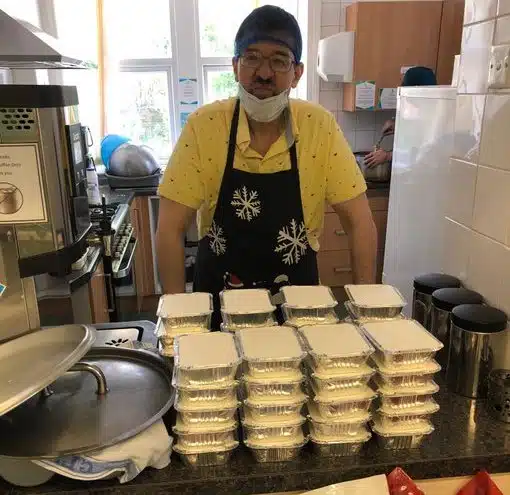
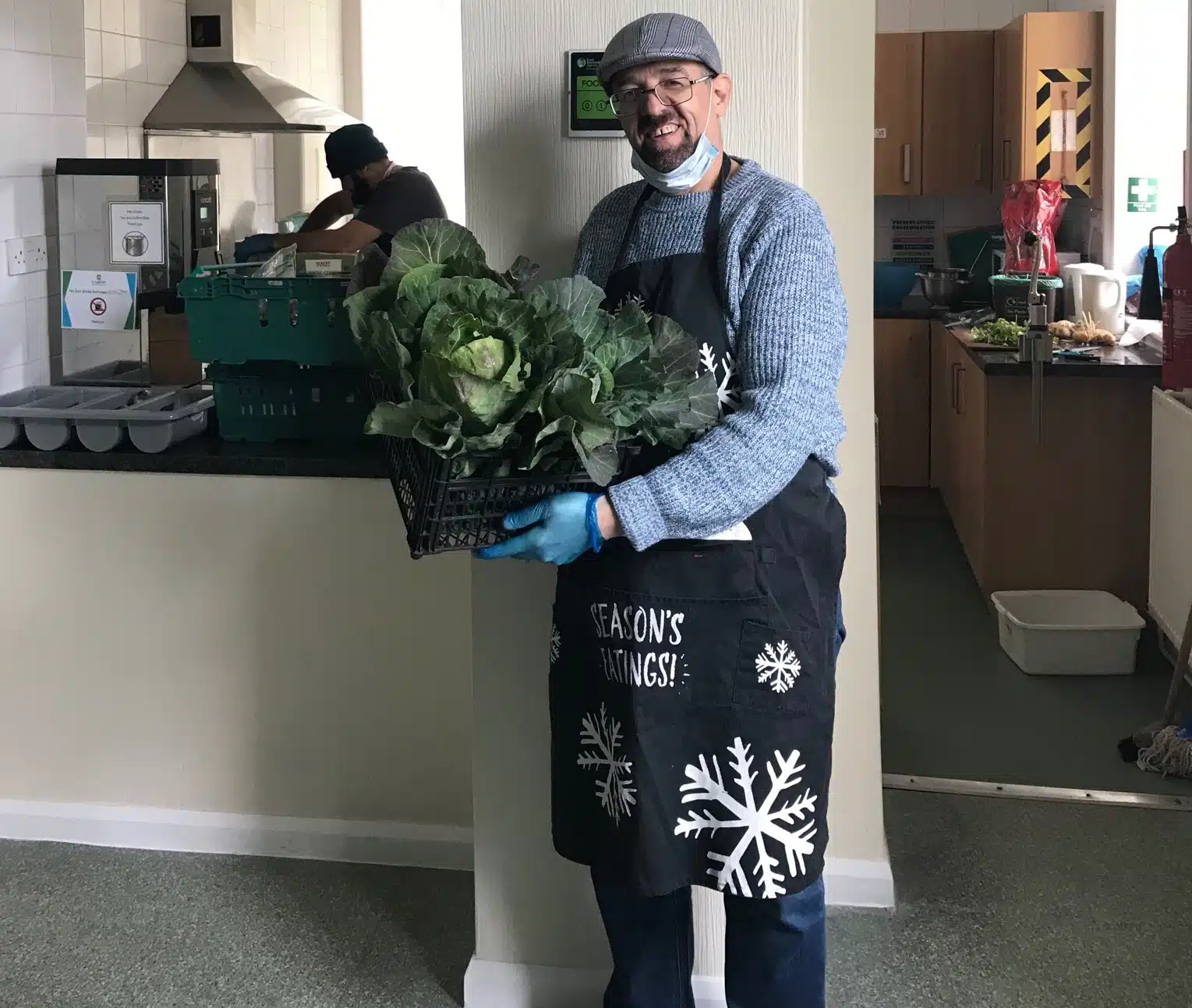
9. The Sheffield tailors
In Sheffield, refugees have made over 50 face masks for a care home and scrubs for key workers. Syrian tailors, Youssef and Zaher have been giving virtual workshops teaching other refugees how to sew masks either by hand or with a sewing machine and working together to create the best designs. World Jewish Relief‘s STEP programme has been supporting them with this and providing the material for the masks as well as supporting Youseef and Zaher into work. Youssef who was well-known in Syria for making wedding dresses, said: ‘I have the know-how, I just wanted to be of use and to help others.’ While Zaher who has also been busy on his sewing machine said: ‘It is in my nature to help people. When Covid-19 hit, when I knew I could do something to help using my skills I didn’t hesitate. I try to help people. Even when I have problems I like to help others as it raises my spirit.’
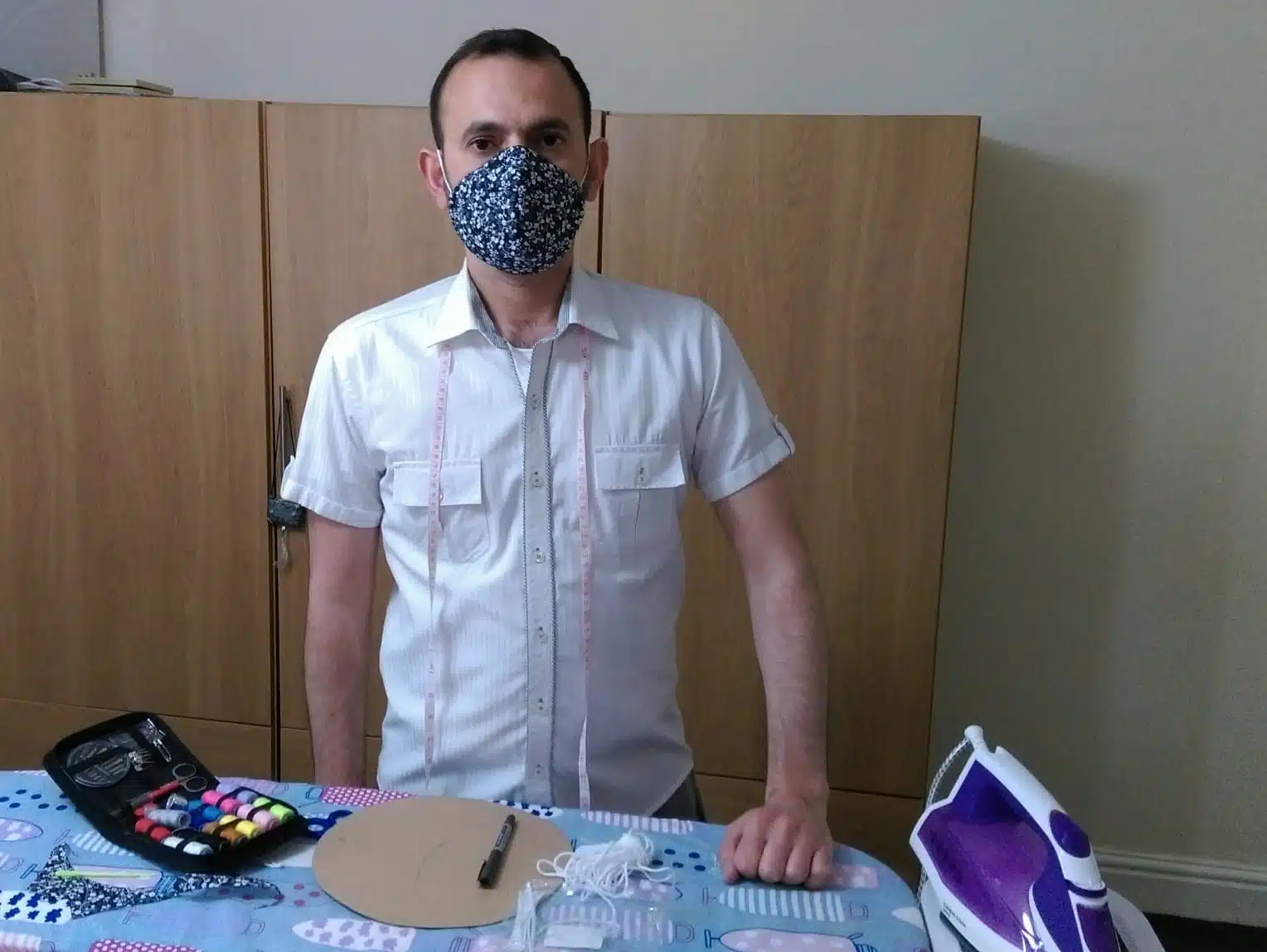
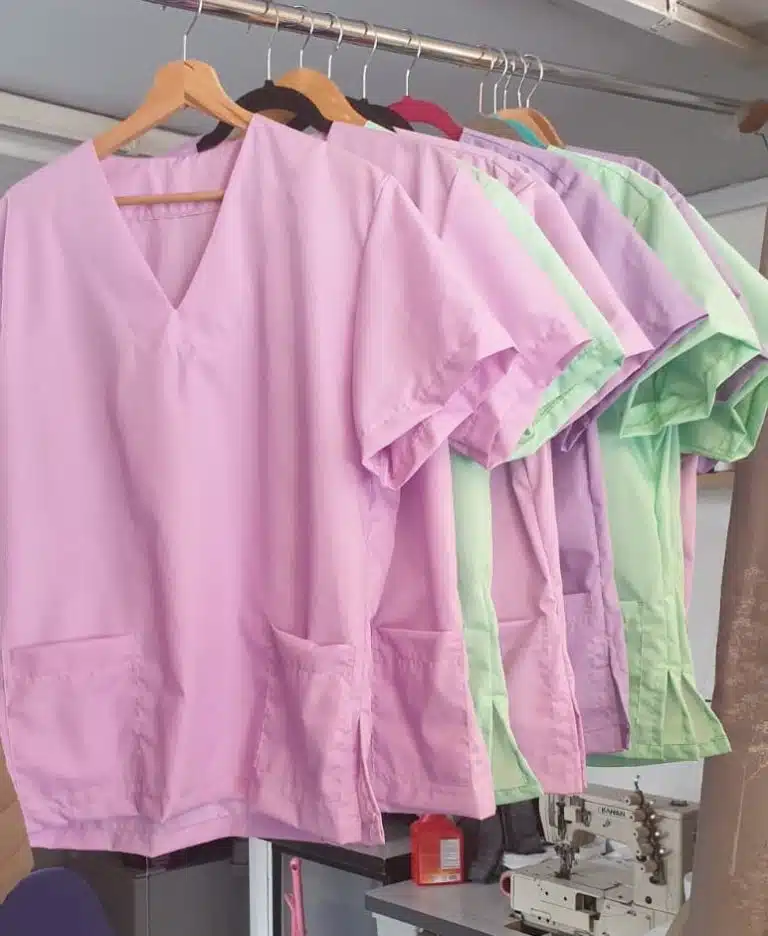
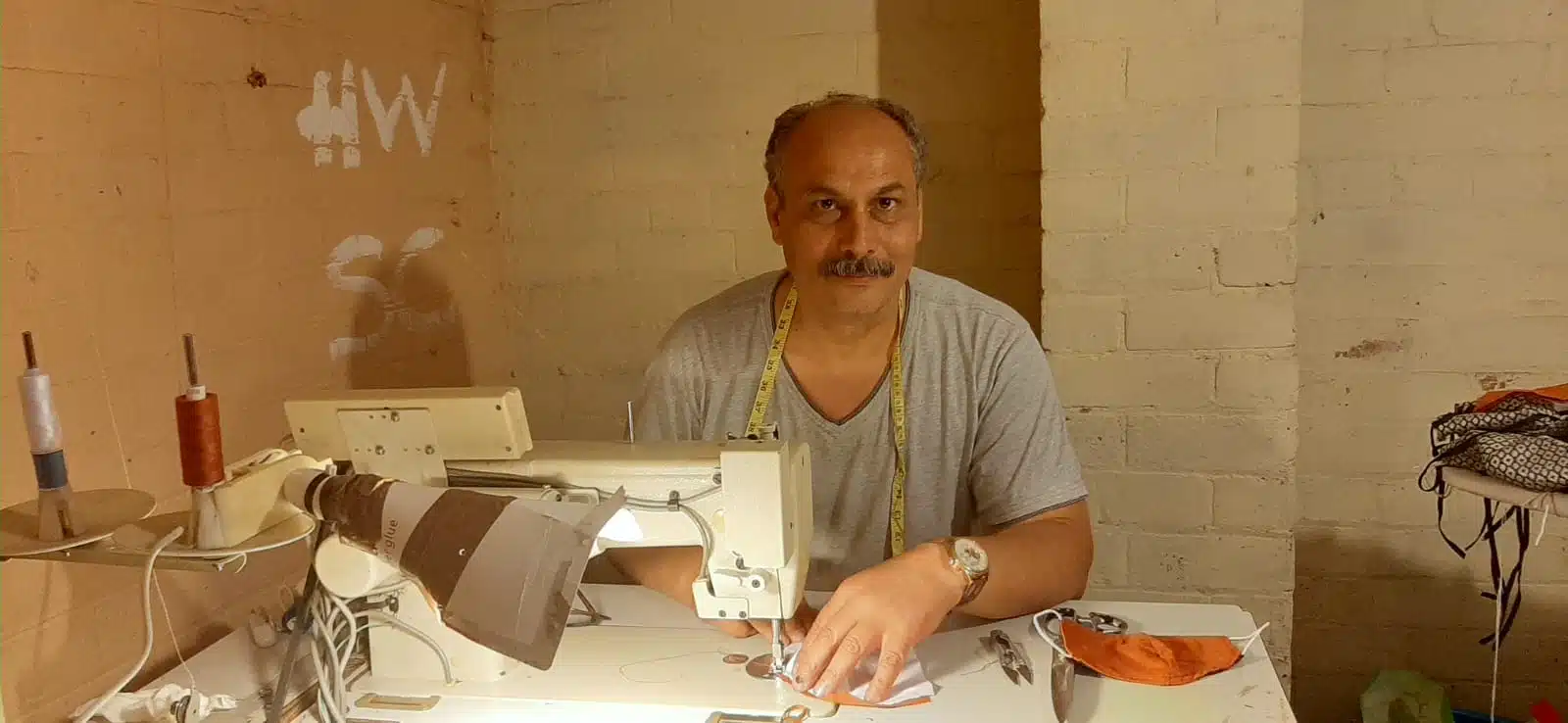
IMIX will be sharing and posting positive stories throughout the week – get involved on social media @IMIX_UK #RefugeeWeek2020 #Imagine.

